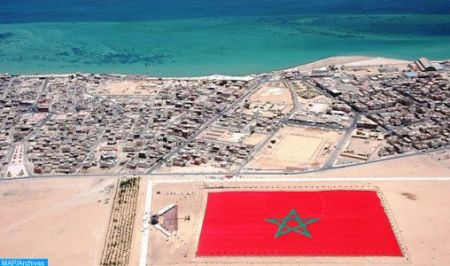Peruvian Daily ‘Expreso’ Highlights Algeria’s ‘Obsessive Hostility’ Towards Morocco
Peruvian daily “Expreso” highlighted in an article “the obsessive hostility” of Algeria towards Morocco, adding that the eastern neighbor “continues to spend resources, energy and money” to support a lost cause. The author of the article writes that how “gas-rich country finance tyrants and mercenaries of the polisario front, suffers from basic commodities shortage such as oil, milk or flour” and how it engages with an obsession against Morocco “instead of investing its efforts on internal development and satisfying its people and youth social demands.” According to Expreso, an explanation comes from the history of polisario’s creation which “stole all the money from authentic Algerians and indulged in drug trafficking and terrorism”, describing it as Algeria’s “illegitimate son”, which after 47 years is “tired, frustrated and moribund”. The Peruvian daily stresses that Algeria, which invested all its richness in the “illegitimate son”, is stubbornly “supporting the polisario guerrilla and uses Sahrawis held on its territory as a ‘tool’ to counter Morocco and destabilize the entire Maghreb region”. First, there is “the Algerian policy regime whose diplomacy has no other question on the agenda than maneuvers hatched in all regional and international forums in the west against its neighbor,” Morocco. Being directly involved in the regional conflict over the Sahara, “Algeria is entangled in its contradictions between actions and statements. It has a flagrant responsibility in the conflict and evidence is not lacking,” the Expreso says, noting that “Algeria finances, hosts, equips and supports diplomatically and through media polisario’s mercenaries.” Another element to the explanation mentioned by the daily is related to Tindouf camps, which have been established for more than 45 years in southern Algeria. In these camps, less than 20% of the population is of Sahrawi origins (Moroccan or Mauritanian), the other is Algerian, in addition to nationals of neighboring countries such as Mali, Niger and Chad. However, “polisario always tends to exaggerate the population number of these camps of shame”, in order to perpetuate the conflict and obtain more aids from donor countries and international organizations and enrich Algerian generals and leaders of this separatist movement, the daily notes. Hence, polisario’s sponsor (Algeria) “firmly rejects a population census in these camps despite the repeated calls of various international organizations, using as human shield men, women and children who live in inhuman conditions and deprived of basic human rights such as freedom of movement or expression.” Algeria’s frustration, which is solely responsible for the continuation of the conflict for years, also stems from the fact that it “has not been able to obtain recognition of its illegitimate son, either at the United Nations or at the African Union, despite its repeated destabilization maneuvers” to undermine the United Nations political process aimed at advancing towards a realistic and achievable solution to the Sahara issue. “Faced with Algeria’s failures and Moroccan diplomacy achievements, the polisario has become a big problem for Algeria, since the international community has understood, once and for all, that it is Algeria and not the polisario, who needs to negotiate with Morocco a definitive solution to this dispute,” Expreso writes. Pointing to Algeria’s “ambivalence” about the current ceasefire in the Sahara, propagated by the Algerian intelligence services and media, the Peruvian daily stresses that the appeal made by Minister of Foreign Affairs, African Cooperation and Moroccans Abroad Nasser Bourita to the Security Council to “determine, objectively, who is violating the ceasefire on a daily basis. The Security Council was also called upon to clarify who supports the political process and who is putting up obstacles.” “Through everything it says and does, its mobilization and positions, Algeria shows that it is the real party, confirming it on a daily basis through its statements and actions,” Bourita said, quoted by the article. The last element to the explanation of the Algerian obsession with Morocco lies in massive demonstrations of the Algerian Hirak demanding a demilitarized civilian state and condemning the failure of the vaccination campaign as well as numerous cases of corruption within the military hierarchy. “These are all elements leading the Algerian regime to create an external enemy to divert the attention of the Algerian people from their real problems.” “Algeria’s persistence on maintaining the artificial dispute over the Sahara only complicates and hinders the process of economic integration at the regional and continental levels,” the Expreso concludes.

